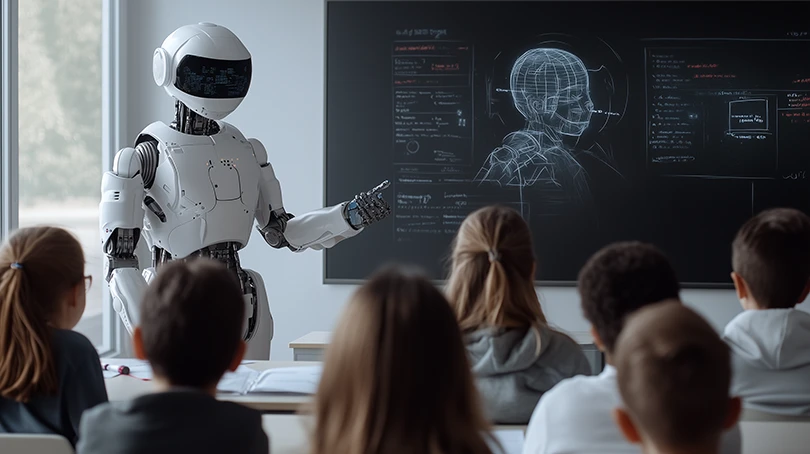Personalized Learning with AI in Education: Are You Ready for the Future of Education?

Artificial intelligence (AI) is transforming the education world, completely reshaping individual learning experiences. The concept of "personalized learning" has become more accessible and effective thanks to AI-powered educational systems. In this blog post, we’ll discuss how AI contributes to personalized learning in education, explore its advantages, and consider the potential challenges. Continue reading to discover the impacts of AI on the future of education!
What is Personalized Learning, and How is it Changing with AI?
Personalized learning is an educational approach tailored to each student's individual pace, interests, and learning style. In traditional education, all students are required to progress through the same curriculum. Personalized learning, however, is structured according to each student’s unique needs. AI steps in here, analyzing students' performance and optimizing the learning process based on their needs. AI-driven education creates a learner-centered experience, enhancing both academic success and motivation.
How Does AI-Powered Personalized Learning Work?
AI identifies students' learning needs using advanced technologies like data analytics, machine learning, and natural language processing (NLP). Key features of AI-powered personalized learning environments include:
- Monitoring and Analyzing Student Performance: AI tracks students' difficulties, learning speed, and preferred content, offering individualized materials and lesson content to make learning more efficient.
- Adaptive Learning Pathways: By adapting content to students’ learning speeds and knowledge levels, each student can learn at their most effective pace. For example, a student can practice more on a challenging topic or move quickly through subjects they find easy.
- Instant Feedback: AI-powered learning systems instantly analyze students' responses and provide feedback. This fast feedback loop helps students see and correct mistakes immediately, accelerating the learning process.
- Content Personalization: AI can tailor content based on a student’s interests. For example, incorporating sports-related examples in math lessons can make the learning experience more effective for a student interested in sports.
Advantages of AI-Powered Educational Systems
AI-powered personalized learning provides several benefits to improve educational quality:
- Education Tailored to Individual Needs: AI customizes educational processes by identifying each student’s specific needs. In large classes, it can be challenging for teachers to focus individually on every student, but AI offers personalized learning opportunities.
- Dynamic and Up-to-Date Content: AI continuously analyzes students' performance and keeps the content current, making the learning process more dynamic and maximizing students' benefit from their education.
- Time and Resource Efficiency: AI reduces teachers’ routine workload by automating tasks such as test evaluation, allowing them to focus on creative content development or individual support.
- Accessible Education Opportunities: AI-powered learning systems offer quality education to students globally, providing valuable opportunities even in developing countries.
Challenges Facing AI-Powered Educational Systems
While AI-powered personalized learning offers numerous opportunities, it also presents some significant challenges:
- Data Privacy and Security: Since AI analyzes student data, data privacy is crucial. Ensuring data is securely stored and not shared with third parties is critical for a trustworthy educational system.
- Educational Inequality: Due to technological infrastructure limitations, some students may not have access to AI-powered systems, which can widen the digital divide and lead to educational inequality.
- The Changing Role of Teachers: As AI's role in education grows, teachers' roles are also evolving. AI does not replace teachers but supports them. Teachers must adapt to this technology and learn how to work effectively with AI-powered systems.
Future Perspective: How Will AI’s Role in Education Develop?
AI will make personalized learning more accessible, efficient, and effective. Students will encounter AI-powered learning experiences not only in the classroom but also in their daily lives. This development will integrate learning into everyday life, allowing students to engage with education constantly. In the future, AI-powered educational systems will offer teachers innovative and creative learning methods, ushering in a new era in education.
Conclusion: The Future of Education is Shaped by AI
AI-powered personalized learning brings about a profound transformation in education, offering a responsive, dynamic, and effective model that meets students' needs. While AI enhances educational quality, it’s crucial to consider data security and ethical use. For AI’s contributions to education to be sustainable, a strong technological infrastructure and support for teachers in this process are essential.
Notification!




